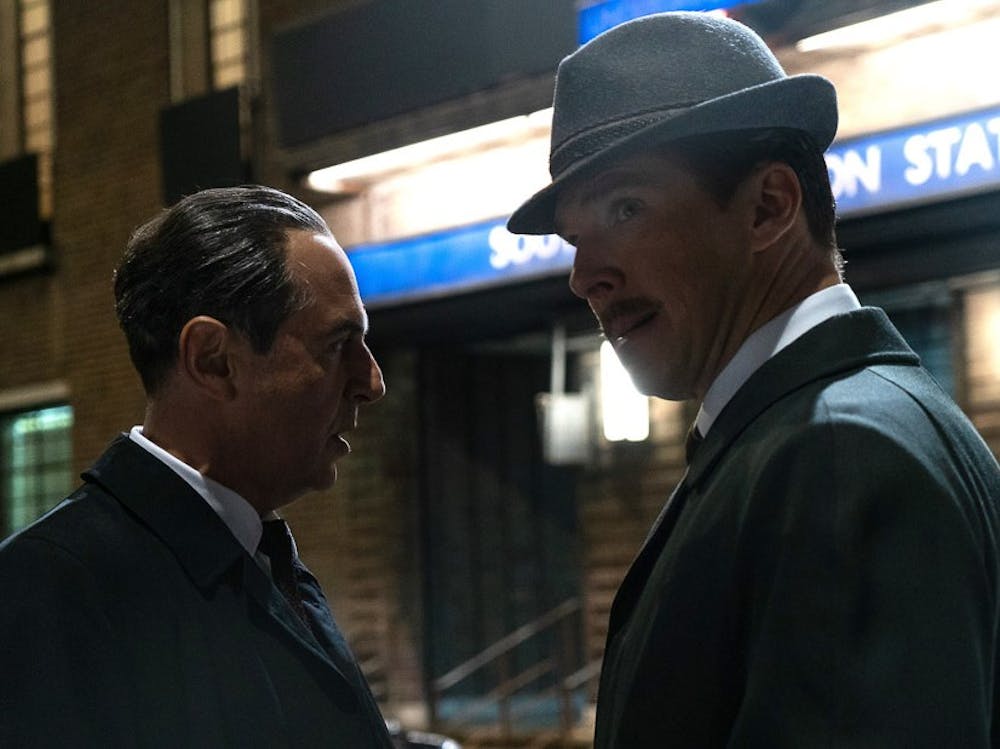Benedict Cumberbatch seems to be steadily making his way through the 20th century. “War Horse” and “The Imitation Game” covered both World Wars and now the actor is tackling the Cold War in “Ironbark,” the untold story of how British civilian-turned-spy Greville Wynne worked with a Russian spy to infiltrate the Soviet nuclear initiative and prevent global annihilation.
Large-scale period dramas have always been a mainstay in mainstream cinema, making “Ironbark” a fascinating if not incongruous selection for the typical indie and arthouse showcase that is Sundance Film Festival, where it premiered Jan. 24 at Eccles Theater. The film is directed by Dominic Cooke, a Laurence Olivier award-winning theater director whose feature film debut, “On Chesil Beach,” was released in May 2018. Fans of espionage à la John le Carré (“Tinker Tailor Soldier Spy,” “The Night Manager”) will likely find “Ironbark” satisfying, though it may be hard to convince general audiences to see a film that is at times stiff and arduous.
“Ironbark” is equal parts drama and thriller, telling the true story of how Wynne, an ordinary London businessman, is recruited to smuggle Soviet nuclear intelligence out of Moscow as part of a joint MI5 and CIA effort. Oleg Penkovsky (played by Merab Ninidze), a Soviet comrade given the codename Ironbark, works covertly as Wynne’s counterpart to help defuse the Cuban Missile Crisis.
Although Penkovsky is the eponymous hero, true stardom lies in Cumberbatch’s role as Greville Wynne. Cumberbatch does an excellent job of playing the boring everyman, a departure from his pattern of portraying gifted and arrogant leaders like Detective Sherlock and Doctor Strange. (And yes, Cumberbatch’s stint as the Grinch does fall under this category.) Cumberbatch deftly captures the absurdity of the situation he finds himself in while honoring the achievements of the real-life Wynne, whose story is heroic, tragic and intensely vicarious.
After the screening, Cooke, Ninidze and actress Rachel Brosnahan took the stage alongside producers Ben Browning and Rory Aitken. “It was this ordinary guy put in an insane situation. It makes you think, well, how would I behave in that situation?” Aitken said.
Brosnahan stars as CIA liaison Emily Donovan, an amalgam of several CIA officials, who is played somewhat plainly by Broshnahan — she seems to be stuck playing powerful American women from the ‘60s. Also featured in the movie is Jessie Buckley, who plays the elegantly distraught wife of Greville, Sheila Wynne. Although the story of “Ironbark” is neither the time nor the place for a powerhouse feminine showcase, both Brosnahan and Buckley are given little material or room to serve as anything other than ornamentation, doubling the wasted potential.
The tension in Sheila and Greville’s relationship due to Greville’s secrecy is clearly intended to pull the emotional weight of “Ironbark,” though it often dilutes and distracts from the impact of the central friendship between Penkovsky and Wynne. The movie fails to decide which relationship it wants to focus on, making it hard for audiences to come away feeling satisfied in either.
While the performances keep the pace going, there is a repetitive and cyclic nature to the film that stretches it thin. By the time it arrives at the third act, you start to wonder — even knowing how history plays out — if the CIA will actually do anything with its stolen secrets to stop the Cold War.
There’s just enough spark from Cumberbatch to keep “Ironbark” energetic, but the film feels more “Downton Abbey” than “James Bond” in terms of promised thrills and drama. As a respite from the genre’s adrenaline and a character study of an obscure Cold War figure, “Ironbark” is really just an attempt to reinvigorate the period drama. Ten years ago, “Ironbark” would be classic Oscar bait, with its sorrowful yet inspiring plot, ties to famous historical events and elegant production design. Cumberbatch even executes a dramatic weight loss, ostensibly in an attempt to shock the audience into awe at his dedication to the craft.
In today’s cultural zeitgeist, “Ironbark” feels like a remnant of productions past. For some, that might be a good thing: Many a dad will likely adore the sleek retelling of Greville Wynne’s story and the fact that “Ironbark” hasn’t been Michael Bay-ified. But when innovative films like “Parasite,” the first Korean film ever to win (or even be nominated for) the Palme d’Or or an Academy Award, are sweeping the awards circuit and generating international acclaim, the entertainment industry will need to adapt to reflect the diversified interests of audiences.
Get The Chronicle straight to your inbox
Sign up for our weekly newsletter. Cancel at any time.

